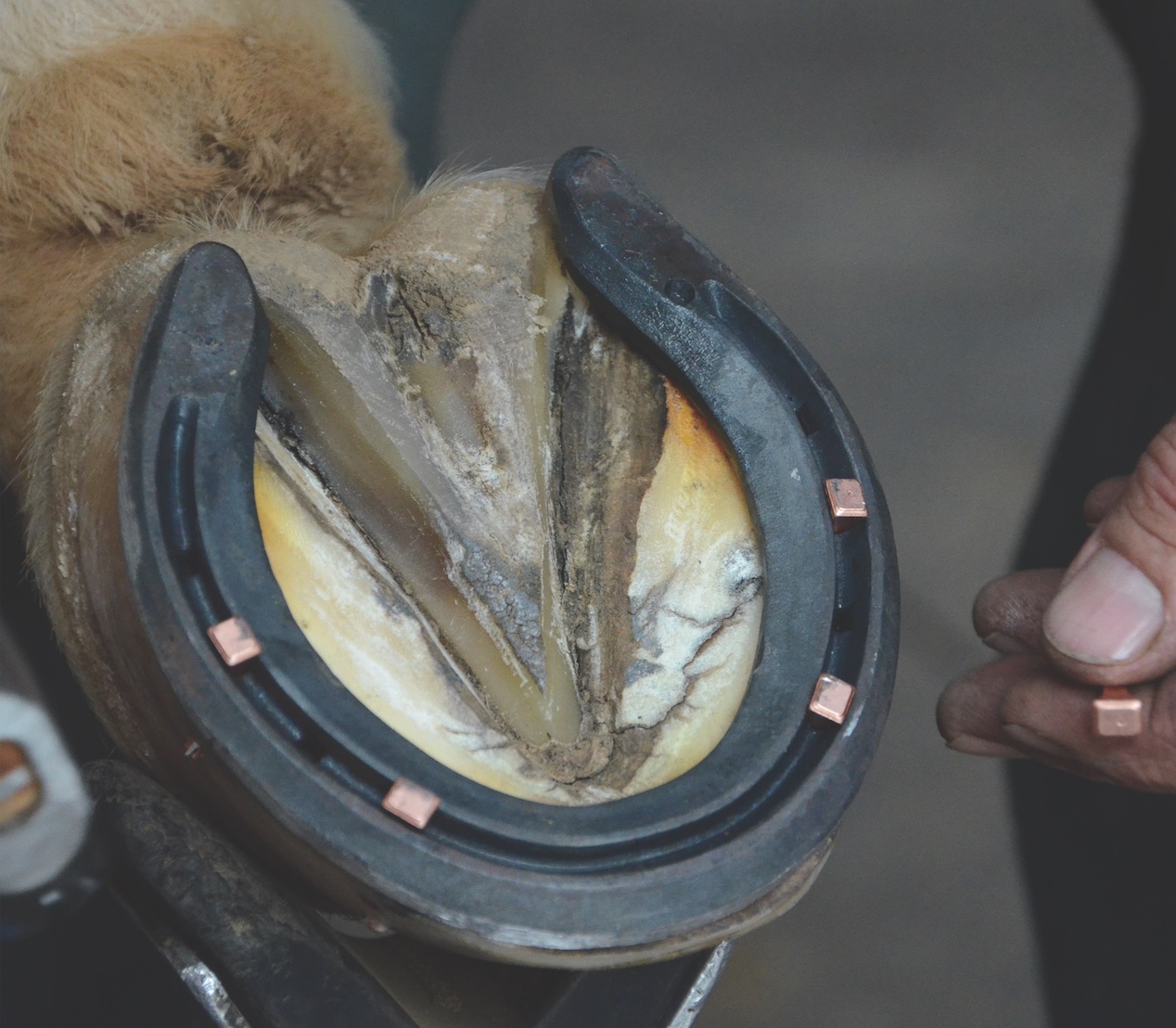
For thousands of years, humans have believed in the benefits of copper. The advantages aren’t just ancient legend: Science has proven that copper can kill bacteria and other harmful microbes by contact. Pair this thought with the fact that the use of nails in horseshoeing can lead to microbial invasion that causes damage to the hoof wall—and suddenly people are interested in (and some farriers are using) copper-coated horseshoe nails.
Since there is little proof that these nails help prevent bacterial infection, two farriers in Queensland, Australia, set out to test the theory. Specifically, Brian Hampson, PhD, of Sunshine Coast Podiatry Services, and John Wilson wanted to see if using copper-coated nails would benefit nail-hole health compared to traditional steel nails.
The farriers selected 11 active sporthorses for their study. During the trial’s first phase, each horse was trimmed and shod twice, six weeks apart, with copper-coated steel nails in the left front and standard steel nails in the right front. Six of the horses were given a 12-week layoff before entering stage two, where the test and control were swapped: Copper-coated nails were used in the right front, with plain steel used in the left front. This eliminated any bias that could have been caused by always using the same hooves for testing and control.
Before re-shoeing, the sole of each front foot was photographed. The farriers used an existing 10-point pathology scale to evaluate discoloration and decay—indicators of poor nail-hole health. For both phases of the study, the control holes—where steel nails were used—had higher pathology scores, indicating poorer hoof health, than the test holes. In other words, the tissue near where the copper-coated nails had been inserted was notably healthier than where steel nails were used.
Dr. Hampson and Wilson concluded that the copper coating contributed to an antibacterial effect, helping the hoof wall to remain healthy. But they cautioned that the study specifically used steel shoes and that using copper-coated nails with aluminum shoes may actually lead to hoof damage. The farriers noted that hoof-wall health depends on other factors beyond the type of nails used.
This article was originally published in the November 2018 issue of Practical Horseman.









